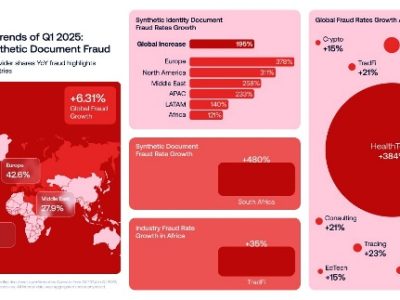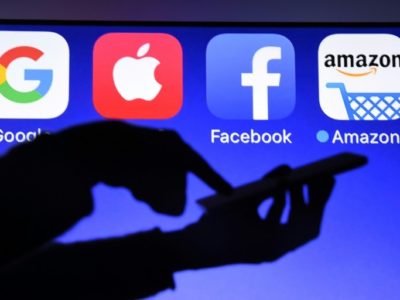Nigeria’s broadband dilemma
Knowhow Media Reports – Writer/Researcher: MARTIN EKPEKE
Broadband Realities
Courtesy: Presentation on ‘Satellite Based Broadband in Nigeria, Prospects and Challenges’ at eNigeria 2013 by Engr. T.Ahmed-Rufai, MD/CE, Nigcomsat Ltd
One way to capture Nigeria’s broadband dilemma is to look between the poverty lines of its 176 million people. In terms of affordability and access, those living on less than N340 per day (about $2/day) must set aside between 40% to 45% of their monthly income to access broadband. The entry level is much higher in several cases within the country as you move farther away from economic hubs or urban centres.
The 40% figure may hold for city dwellers in Lagos, Abuja, Kano and Port Harcourt where access is relatively enhanced and income is comparatively higher. Broadband access in urban centres like Owerri, Minna, Kaduna, Jos, Makurdi, and even Kaduna oscillates between partial and nil. Affordability relative to income hovers between 45%/per income and up to 75%/per income.
But Nigeria’s case is not unique. As analysts, Abiodun Thorpe rightly observed, “in many countries this figure exceeds 80% or 100%. As a result, billions cannot afford to get online, entrenching the digital divide and constraining economic and social progress.”
For many, Internet access exists only via their mobile phones. Mobile Internet has grown in leaps and bounds in Nigeria. Over 47% of the 114 million subscribers in Nigeria use mobile Internet services. This has helped to expand the window for data usage in a country eager to cross the access threshold. But quality bandwidth to the consumers remains a challenge making mobile internet connectivity not a completely satisfying experience. Broadband is high-speed communications networks that connected end-users at a data transfer speed greater than 256 Kbit/s. In terms of user experience, “broadband within the Nigerian context is defined as an internet experience where the user can access the most demanding content in real time at a minimum speed of 1.5 Mbit/s.” The ubiquitous mobile internet in Nigeria’s communication space hardly matches up to this minimum requirement.
Courtesy: Presentation on ‘Satellite Based Broadband in Nigeria, Prospects and Challenges’ at eNigeria 2013 by Engr. T.Ahmed-Rufai, MD/CE, Nigcomsat Ltd
Nigeria’s broadband dilemma hinges not on a broadband vacuum as was the case over four years ago. The country is faced with last mile broadband challenges. Tech analysts Femi Longe writes: “Nigeria has a man-made Internet dam consisting of three companies: MainOne, Globacom (Glo1) and MTN (WACS) with mega terabytes of bandwidth all lying low at our Atlantic shores. The idle capacity can increase our current internet penetration and quality more than tenfold.
“Unfortunately, only less than 5% of the capacity is in the hand of the customers who sorely need the bandwidth downstream. The challenge lies in the lack of sufficient inland fibre optic infrastructure to carry the bandwidth to offices and residences in the hinterlands in a manner more efficient than microwave which is the current predominant means of last-mile transmission in the country.” Quoting Mr. Usen Udoh, a senior director at Accenture Nigeria, Longe added: “It is like somebody who just brought a huge pot of soup and put it in front of your house and there are no plates to go there and serve the food and bring them in.”
Government response to end dilemma
Government has already approved ‘The Nigerian National Broadband Plan’ as roadmap to address the broadband dilemma. The 105-page seeks to:
- Establish policies that regard ICT networks and installations as critical national infrastructure that qualify for special government protection.
- Promote transparency of pricing and reduction of build-out costs by encouraging an increased level of infrastructure sharing and interconnections and introducing price caps where necessary or when market forces fail.
- Take necessary regulatory measures to ensure better performance levels in the delivery of broadband services.
- Facilitate rapid rollout of wireless and wire-line infrastructure and provide incentives to encourage a national 3G wireless coverage to at least 80% of population by 2018.
- Timely release of more spectrum for broadband services especially for LTE.
- Foster attractive investment climate by targeted schemes for stimulating demand and providing targeted concessions, tax incentives, grants or support where needed.
- Raise digital literacy & inclusion by using existing national assets for community access
- Advocate and demonstrate the benefits of broadband within the levels of government and also among the people
A Summit to end broadband hiatus
TACKLING THE BROADBAND DILEMMA: Chairman of NCC Mr. Peter Igor, ComTech Minister, Mrs. Omobola Johnson, and EVC/CEO of NCC, Dr Eugene Juwah
The December 2013 first annual Telecom Stakeholders’ Summit hosted by the Nigerian Communications Commission in Lagos couldn’t have provided a more appropriate opportunity for various stakeholders to have their say. But they still have to wait for some time to have their way. Stakeholders at the summit harped on broadband and government’s effort toward getting it to everyone’s doorstep. But the general perception is that, though Nigeria has in its hand huge broadband capacity in the shore of Lagos, citizens’ access to bandwidth is limited by the twin evil of lack of infrastructures and unavailability of last mile connectivity.
A sum up of submarine cables that has landed in Nigeria shows that the country has 9880 gigabits all live and active in Lagos. Here is a quick breakdown: Sat3-340, MainOne-1920, Glo1-2500 while WACS-5120. This is huge on paper, but the average citizen still fell unserved.
Broadband is the next big thing in the global economic revolution, and Nigerian government’s goal towards that has been much clearer in recent time; to achieve one national network capable of delivering broadband speeds not less than 50 per cent of the average speeds available worldwide at the consumer end within the next five years.
Does broadband means more jobs and better life?
Any country seeking growth, job and wealth creation must address how it can increase its access to broadband and if governments can improve broadband penetration in the continent most Africans would have increased access to the internet. What does it mean? People will realise their life goals with greater access to research and findings about education, culture and entertainment. In his paper presentation on ‘Satellite Based Broadband in Nigeria, Prospects and Challenges’ at eNigeria 2013 by Engr. T.Ahmed-Rufai, MD/CE, NIGCOMSAT Ltd concludes that broadband does not merely mean access to internet but significantly implies positive and explosive growth in diverse sectors of the economy. “Policy-makers may be skeptical that broadband can actually deliver benefits and they often ask these questions: Why would a nation struggling to provide basic amenities to its citizens worry about broadband access? Will broadband connectivity really drive the nation’s economy or just make Internet connections faster? Can it create jobs, enhance safety and security, improve health care, literacy rate and promote an all-inclusive democracy? Yes! Broadband truly impacts positively on these sectors?”
Courtesy: Presentation on ‘Satellite Based Broadband in Nigeria, Prospects and Challenges’ at eNigeria 2013 by Engr. T.Ahmed-Rufai, MD/CE, Nigcomsat Ltd
Courtesy: Presentation on ‘Satellite Based Broadband in Nigeria, Prospects and Challenges’ at eNigeria 2013 by Engr. T.Ahmed-Rufai, MD/CE, Nigcomsat Ltd
Internet penetration in the country has continued to experience steady growth from 0.1% in 2001 to 35% in December 2013. But from the National Broadband plan 2013-2018, government has given itself a target of 95% availability and a 76% penetration by 2020.
The push by the Nigerian Communications Commission to license fresh spectrum that will be used in deploying broadband services this year will help businesses and individual in the area of efficiency and productivity. After much consultation last year, the regulator announced its plans to license the remaining block of the 2.3 GHz spectrum. According to the Executive Vice Chairman of the commission, Dr. Eugene Juwah, NCC has decided to undertake an auction to award a spectrum license to build and operate networks that would provide wholesale wireless services in Nigeria. This decision is based on the positive outcome of the consultation, and a direction of the National Broadband Plan 2013-2018.
Fair is fair. The policy goal of the Federal Government of Nigeria recognizes the immense socio-economic importance of broadband services to national development. It also seeks to ensure that the infrastructure necessary to provide ubiquitous broadband services is available and accessible to all citizens at affordable rates. This, government is doing through right policy implementation.
“The same three things that fuelled our success in voice will fuel our success in the delivery of broadband services in Nigeria – clear government policy, effective and independent regulation that attracts the necessary investments and again spectrum,” said Minister of Communication Technology, Mrs. Omobola Johnson at a stakeholders’ forum in Lagos.
No doubt, the federal Government has an interest in converting the states and local governments in Nigeria into digital havens that will be fully networked and ready to be integrated into the new world order of digital citizens in an environment of e-governance, e-health, e-commerce and e-agriculture among others.
A check by Knowhow Intelligence Unit shows that some states have taken steps to partner with telecommunications/ICT service providers to deploy necessary fibre and other electronic infrastructure for the benefit of their citizens. Governments have necessary roles to play in removing many bureaucratic difficulties and obstacles that hinder faster broadband rollout.
The government understands the role of broadband in the society and has continued to make efforts towards a connected community. Here is a quote from the Nigerian National Broadband Plan 2013 – 2018 on its vision for broadband “The broadband vision for Nigeria is one of a society of connected communities with high speed internet and broadband access that facilitates faster socioeconomic advancement of the nation and its people.”
To achieve broadband penetration faster, experts have advised government to enforce the principle of open access and infrastructure sharing which the regulator is already adhering to. Nigeria’s broadband rollout plan is fostered round the open access model.
Findings revealed that National Backbone fibre optic infrastructure has presence in all the thirty six states and the FCT. But while many routes in the country still do not have fibre coverage, there exists a proliferation of fibre along some routes. This has not helped as the multiple fibre installations are mostly not interconnected to offer the required redundancy to promote network resilience. To add to their efforts, the Federal Government should as a matter of urgency promote the rapid establishment of recovery agreements and the delivery of additional cable landing points to other coastal states such as Delta, Rivers, Bayelsa and Ondo as soon as possible.
Broadband picture
- Approximately 30,000km of fibre had been laid as at 2010 additional 11,000km was laid since then (of which 4,000 was over power line). However, additional fibre is mainly duplications along a few commercial routes.
- Bandwidth capacity on undersea fibre-optic networks had increased significantly in the past years.
- More Base Transceiver Stations, (BTS) across the country needed; not only to enhance broadband penetration in Nigeria, but to improve on quality of service offered to subscribers through network decongestion.
- 60,000 Base Stations needed to be deployed by 2018 – Nigeria’s ComTech Minister Omobola Johnson
- Base stations increased exponentially from 116 in 2001 to 21,000 in 2010
- Deployment has slowed down owing to high set-up/operating costs as a result of multiple taxation fees and levies by States; inadequate power supply; and security challenges such as bombings, vandalisation and equipment theft
- Other issues slowing down BTS growth: Delays in obtaining approval to build base stations as a result of multiple regulation and un-standardised application and approval processes have also slowed the growth of base station deployment.
- POSITIVES: Operators are committing over $6 billion in infrastructure starting 2013 for more BTS to enhance broadband penetration
Why is it important to get the bandwidth into the hands of Nigerians?
The potential for web-enabled services powered by mobile technology to solve the many lingering quality of life issues in Nigeria is clear.
As the costs of mobile devices drop and their capabilities increase, economics will drive the development of innovative applications of the technology for social change in areas such as education, e-commerce, entertainment, agriculture, recruitment, e-government, civic engagement in governance and B2B interactions.
For citizens to properly consume these services, their access to the internet should not be as unpredictable as a roll of a dice. And if we are to maximise the potential customer base in Nigeria, the services will not target just city-dwellers but should be capable of meeting the needs of those in the hinterlands who arguably have larger quality of life issues.
Considering that global spend on IT products and services for 2013 is forecasted to grow to $3.7 trillion USD by international research firm Gartner, you can make projections on the loss of valuable income to the Nigerian economy for every day we can’t get quality bandwidth to the consumers.
This is not to say there is absolutely no inland fibre optic coverage in Nigeria.
Several private companies including Suburban & Phase3 Telecom have invested in inland fibre optics line predominantly serving large business clients. Galaxy Backbone PLC is a public enterprise of the Federal Government with a mandate to provide fibre optic coverage to Federal Government ministries, departments and agencies.
These investments however leave out the bulk of the masses as there is limited incentive to extend out to serve them.
————————-
Femi Longe is a co-founder and Director at Co-Creation Hub Nigeria (CcHub). Follow him on twitter @femilonge and he blogs at www.femilonge.com.
Nigeria’s 6% broadband penetration too low
- As at 2012, Nigeria’s broadband penetration rate was 6%, which means the country is seeking to achieve 30 per cent penetration by the end of 2018.
- Broadband infrastructure is an enabler for economic and social growth of the economy.
- President Goodluck Jonathan approved the country’s national broadband plan for the period 2013 to 2018, inaugurated by the government in September 2012.
- Committee is chaired and co-chaired by former Executive Vice-Chairman of the Nigerian Communications Commission (NCC), Engr. Ernest Ndukwe and Visafone Communications Limited founder, Jim Ovia respectively.
- Committee goal is to increase broadband penetration by five times by the end of 2017.




























